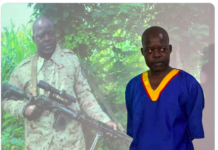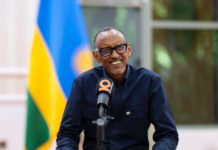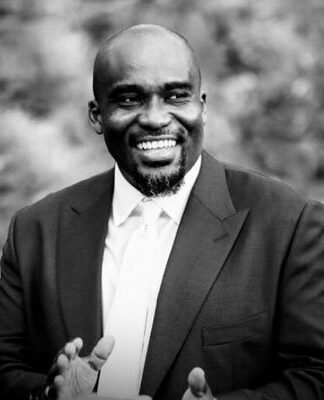In the same logic as this heading, there are today views which justify the invasion of Rwanda by the Rwandan Patriotic Front back in October 1990 coming from Uganda with the full support of this country and indirect backing of Anglo-Saxons interests which wanted to have more influence in the region.
Soon twenty five years will have passed since that invasion. They have been characterised by genocides, crimes against humanity and war crimes, millions of displaced and dispossessed people in Rwanda and the Democratic Republic of Congo, and installation of a ruthless dictatorship in Kigali, and even Kinshasa. Scars of atrocities experienced, which for example in the case of Tutsi and Hutu and Twa survivors inside and outside of Rwanda are still fresh or far from healing, will be carried by many for generations. Another social and regional tragedy created out of stubbornness!
Back to the Burundi case. Outside individuals and families directly affected by recent events, the world doesn’t know how many victims there are on the grounds or will be. Without internet and facebook and other social media platforms working in the country at the moment, it is difficult to assess rightly what is going on. Some revenge killings are reported; how many is the question.
Carina Tertsakian, from Human Rights Watch, reports that
“Those who ordered the attacks on the radio stations know the power of Burundi’s media. They know journalists will report on human rights abuses and take seriously their duty to inform the public. They think that when they deprive the country of news, they can act with impunity. But Burundi’s media will not be silenced for long. Journalists will come back and investigate what happened. Crimes will be revealed and the perpetrators eventually brought to justice.”
After escaping the coup and managing to get back to Burundi from Tanzania – and if one looks objectively to the prevailing situation – there is no doubt that president Pierre Nkurunziza might be tempted to become tougher towards the opposition and anyone with views different from his political line. Unfortunately, according to certain specialist sources, there is apparently no legal basis for his claim to a third term.
Kambanda Charles, an exiled Rwandan lawyer based in US, thinks that the Burundian legal texts, both the constitution of 2005 and the Arusha agreement of 2000 are clear on the president terms in office. He explains:
“I think there is no loophole in the 2005 Burundi constitution Article 96. The issue is that people are reading the Arusha agreement into the 2005 constitution. This is wrong because the framers of the two documents did not intend this. Why? The Arusha agreement does not state that it is an integral part of the subsequent constitution(s) neither does it state that it prevails over the constitution. On the other hand, the 2005 does not mention anything about the Arusha agreement; the constitution did not adopt the Arusha agreement. While the Arusha agreement slaps an equivocal ban on a person being president for more than two terms, the 2005 constitution is clear, no person can be president for two terms if he was voted by universal suffrage for those two terms.”
Leaving aside the game of interpreting legal texts to justify his own views and preserve his position of president, it emerges that if Pierre Nkurunziza goes on being a candidate to the upcoming elections and win them, he might spent another five years in office, if he is lucky until then. Therefore he will have spent 15 years in power, that neither the Arusha agreement nor the Burundian constitution indicate. Consequently, he should stop taking people and especially his fellow compatriots for fools.
Then the question that supposedly concerned people could ask at this point in time is this: despite everything else, are for example 105,000 officially recorded Burundian refugees who had fled their country by 15/05/15, and all the dead since 26/04/15, worth Nkurunziza’s stubbornness? Remember that their number will keep increasing as long as the president does not remove his name from the list of potential candidates for the next elections.
Popular protests interrupted by the failed military coup of General Godefroid Niyombare won’t stop, because their initial “raison d’etre” is still there: president 3rd term. Don’t people read the path taken by past experiences? Could for example the situation in Burundi sparkle a chain of events like the one started by the invasion of Rwanda by the Rwandan Patriotic Front in 1990? To these questions and many others related to the situation in Burundi and the region I leave the reader.
Ambrose Nzeyimana
Political Analyst/ Activist
Organising for Africa, Coordinator
The Rising Continent, Blog editor
London, UK
Email: [email protected]





























































